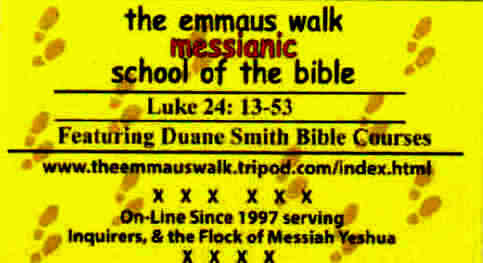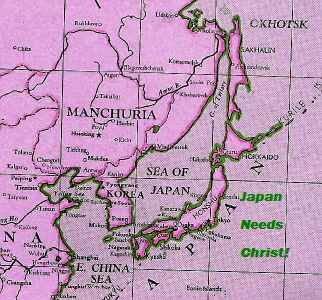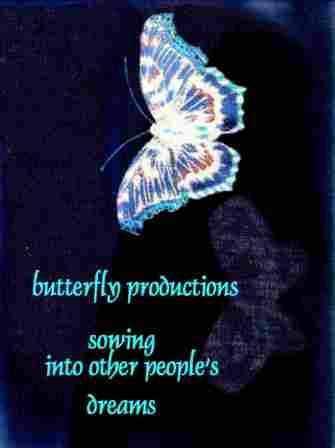
THE EMMAUS WALK PRESENTS:
Paul Ariga's Testimony:
"THE GODS WERE SILENT"
Chapter 1

Introductory Remarks
This is the true account, the exciting testimony of Paul Ariga, a young (and sinful!) Japanese boy who became a Christian convert and at the same time an evangelist for Jesus Christ in Buddhist-Shinto Japan, where Christians, after over 400 years of exposure to Christian faith, number less than 1% of the population. How does a young boy who believes in Shinto religion and many gods turn to Christ for forgiveness and eternal salvation and begin an entirely new life living and witnessing for Jesus? How does someone lost in deep spiritual darkness find the Light, in a society wher a fox god in a temple is prayed to by a mother to save her sexually addicted son while she stands next to a man running the house of prostitution who is praying for more such business? How does a mere boy escape the hereditary religions held by the family, religion which shackles his mind and perceptions, when family is the strong, traditional kind that rules almost everything in a person's life and thought? And how does an American understand what holds Japan to pagan religions while the light of the Gospel is ignored or shunned, a light that can set Japan free for the first time in its long, millennial existence? How can we help bring the light of the Good News of Jesus to darkened, spiritually-enslaved Japan? Is God calling ME, the reader, to evangelize the precious people of Japan, to call them out of their prison of paganism into Christ's marvelous light and freedom? Are modern Buddhism and Shintoism with polytheism or worship of many gods and buddhas and methods of self-enlightenment just another way to worship the same God that Christians know, and thus they are equal to Christian faith in knowing and serving God? This testimony may help with all of these and other vital questions.
I was informed in 1987 that my book, "Walk in the Light," an "As Told To" biography of a Romanian evangelist who was miraculously delivered from Communist Romania and had ministered many times in Japan, was re-printed in Japan! Paul Ariga's testimony then is all the more significant to me because my own book may be witnessing of Jesus in Japan, since the late 1980s. A link to "Walk in the Light," about the faith-adventure of Romanian evangelist Ilie Coroama and his wife, as well as their divine, miraculous deliverances from the brutal dictatorship and persecution of Communist Romania, is given below, which you may want to check into when you finish Paul Ariga's testimony.--Ronald Ginther, The Emmaus Walk

DEDICATION:
"The Gods Were Silent,"
by Paul Ariga
I want to dedicate my testimony to:
1. Yukiko, my wife, a dedicated and unselfish Christian worker.
2. The memory of Rev. Floyd Hitchcock, founder of the Faith of Our Fathers radio work. His spiritual ministry and total dedication burn like a light in my young heart.
3. You dear World Harvester and Honda Crusade friends. You have made possible our Crusade victories. I love you in the Lord. Great shall be your reward in heaven.
"I Wore My God,"
Chapter 1
As a small baby my parents took me to the Shinto Shrine where I was dedicated before the gods. I was born June 27, 1933, in Shirakawa City in the province of Fukushima. My parents were strict Buddhist and ardent Shintoists.
At the shrine where I was dedicated they purchased an "omamori" (good luck charm for protection) for me. I wore it much like a Catholic wears a crucifix. It was tied to my belt. For annual good luck they must be bought every year.
When I went on a school excursion I slept with my good luck charm under my pillow. With this charm so near my head I thought that I would get better grades in school. Surely it would mean that I would get smarter.
My charm was also my insurance against anyone stealing my briefcase on the trip. I also felt that it would protect me from the dangers of fire, earthquakes, and sickness. Even if an earthquake came I felt that even if all of the other students were killed, my gods would protect me.
This charm was made up of a small pretty colored cloth bag with a string on it. Inside the bag is a piece of paper or wood. These represent the spirit or spirits of the gods of the shrine. This inserted piece is called, "shintai" (the body of the god).
I was a very religious boy. Every morning I offered rice and soup to the gods. I placed it upon our god-shelf. I also lit a candle before the gods. I also offered the same to the lord Buddha and to my dead ancestors.
The Shinto religion has as it chief god, the sun goddess. We have a saying that says there are 8 million goids in the Shuinto religion. The Buddhist religion worships the lord Buddha, who was born in India, as well as praying to the dead ancestors. In Shintoism the gods were former living beings such as emperors, warriors, and scholars. Such was our belief that they could now do more to help us.
Each Shinto shrine specializes in some special form of blessing. In Tokyo there is even a robbers' shrine. There robbers come to pray for special "robber blessings."
We prayed for three things at the shrine: Prosperity in business, happiness and health for the family, and for a long happy life. Paget Wuilkes once said, "I have talked to many Japanese praying at the shrines, buy I have never yet met one, who was asking the gods for the forgiveness of their [sic] sins. They were always praying for some selfish request for blessing."
The heathen idolatry of these false gods can easily be seen, in the following story. Two persons were praying at the shrine of the fox god, Inartisame. One was the keeper of a house of prostitution. Standing by his side and praying to the same fox god was an elderly gray-haired mother.
The keeper was praying that the gods would bless his business so that more customers would come to his house of prostitution. The age mother, with tears in her eyes, was pleading with the fox god to free her only son from his sex addicton with prostitutes.
How could the same fox god answer the prayers of both of these persons? The purifying influence of Christianity and its elevating influence is quickly seen in this story.
Such was my upbringing. Superstitutions haunted my life. I had nver heard of the true God or of his son, Jesus Christ. No one had ever told me of the cross or of Calvary love. I was unsaved and no one cared.
When I was twelve I was saving up money to buy a bicycle. When no one was looking I took money from my savings bank to buy candy, go to the movies, or to buy sports equipment. One day my mother found out my bank was almost empty. I lied to her. She believed me and blamed the theft on a naughty neighborhood boy. She told others about the bad deed of this boy. I did not confess that it was I.
My conscience bothered me. I wanted to gain forgiveness from the gods for lying to my mother. I got up at five in the morning and went to sweep clean the shrine yard. In his way I felt that I was gaining favor of the gods.
After I finished I went before the gods to pray. There I bowed my head and clapped my hands. However, I had no heart peace. The gods were silent. They did not answer my prayer. In desperation I cleaned the yards of two shrines. Still I had no heart peace. I visited many different shrines and temples and there prayed to the gods.
Still my troubled heart had no peace. I had prayed, but the gods were silent. If they heard my prayers, they did not take the time to answer them.
Others thought that I was a very religious boy. Even my school principal give me a special certificate in honor of my faithful work at the shrine grounds. In reality, for two years I had been trying to cleanse away the sins of my heart by my own good works.
PLEASE GO TO THE SECOND CHAPTER, "LIFE FROM A COFFIN"
(c) 2006, Butterfly Productions, All Rights Reserved

The Emmaus Walk Home Page
"Walk in the Light," The Miraculous Deliverance of a Romanian Evangelist and Bible Smuggler from Communist Romania, As Told To Ronald Ginther
